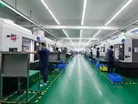The January issue of Manufacturing Global is live!

The January issue of Manufacturing Global is here!
Our cover stars this month are developing sustainable packaging solutions capable of increasing revenue without impacting the environment. Huhtamaki’s Chi Lu, Head of Sourcing, Food Services in Asia and Oceania, insists: “In terms of changing from plastic to a more sustainable alternative, there is no challenge – it simply must be done.”
Pushing the boundaries for Industry 4.0, we learn how Fictiv is democratising access to manufacturing, and transforming the way hardware teams design, develop and deliver physical products, with a virtual distributed manufacturing platform. “Companies that had traditionally run their own factories or workshops, even for prototyping, are now looking at how they can reduce those capital costs and move that process beyond the company walls,” explains Fictiv’s Head of Business Development Mike Geyer.
Euler Hermes (backed by Allianz) predicts trade and credit risk to give companies confidence in tomorrow. Its manufacturing specialist and Assistant Head of Risk Underwriting examines the last 12 months and charts the risks for manufacturing in his outlook for 2020.
Elsewhere in this issue, we hear from T2 Tea’s Global Head of Technology. Rohan Penman details the digital initiatives underway at the tea retailer and how it is pioneering new methods of customer engagement underpinned by cutting edge warehouse and POS systems “integrating the digital world and the physical store”. We also hear from Poland’s oldest chocalatier; LOTTE Wedel shares its innovation journey, focused on ensuring a sustainable business model.
Embracing technology might be the key to harnessing the efficiencies of a data-driven future but security must be paramount. “While the Industrial Internet of Things (IIoT), artificial intelligence (AI), automation, and robotics are disrupting how the sector operates, these technological developments are also increasing its vulnerability to cyberattacks and data breaches,” says Censornet CEO Ed Macnair. He urges that when it comes to security, “autonomy is more important than automation”.

